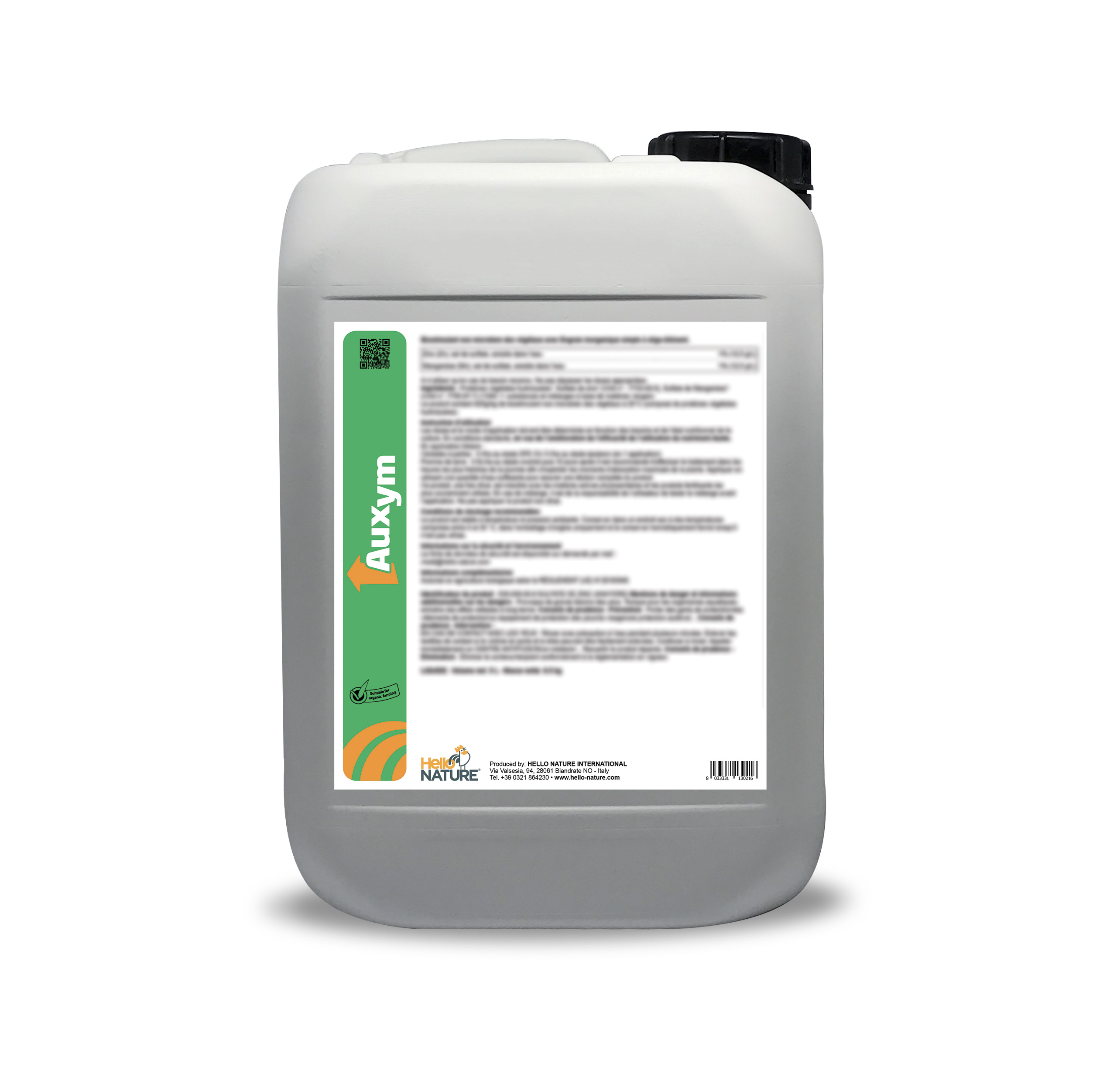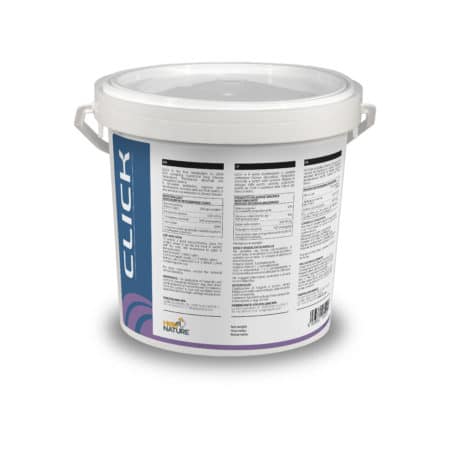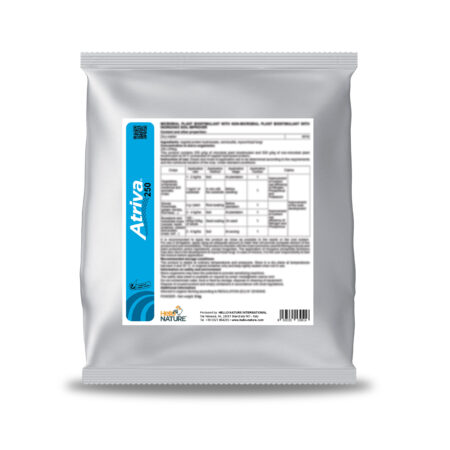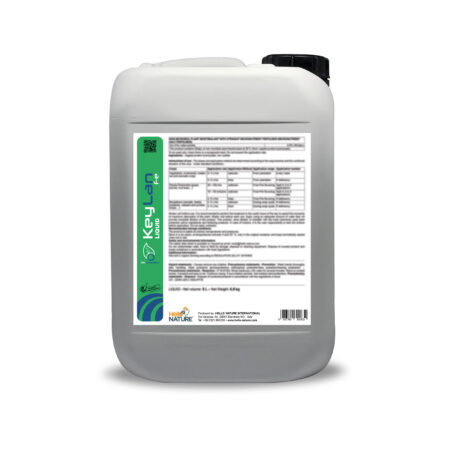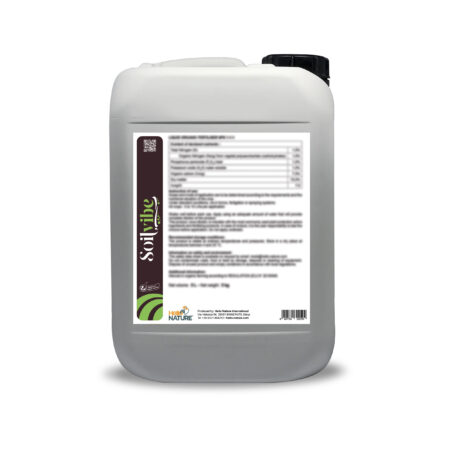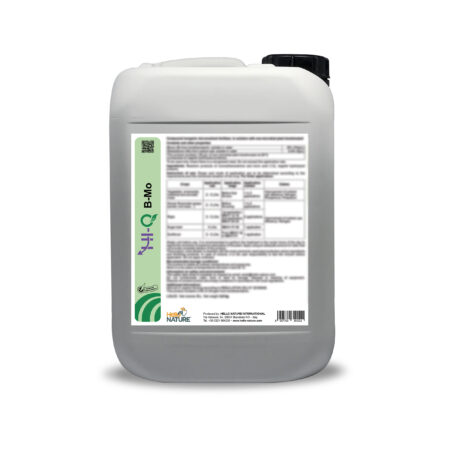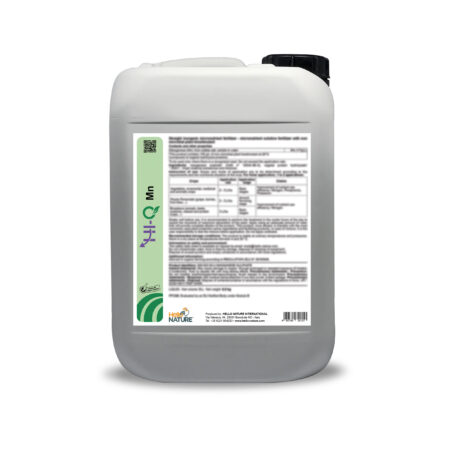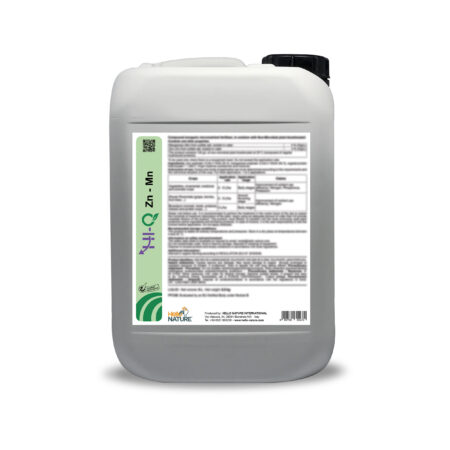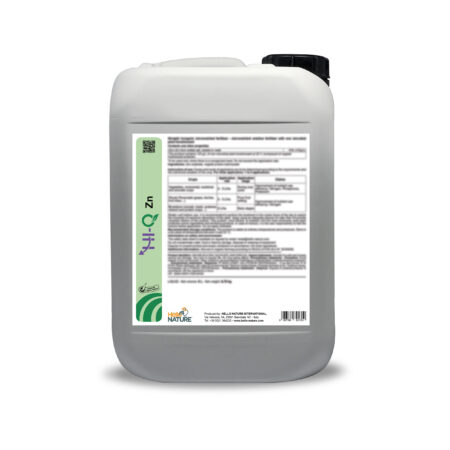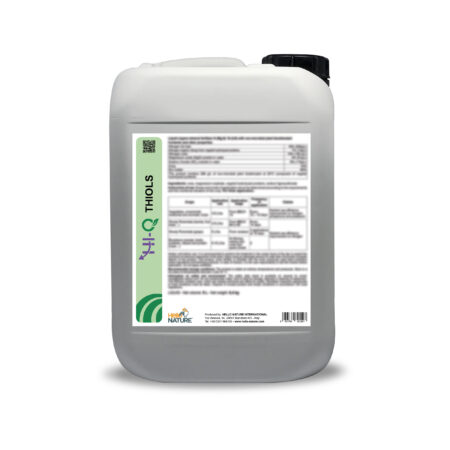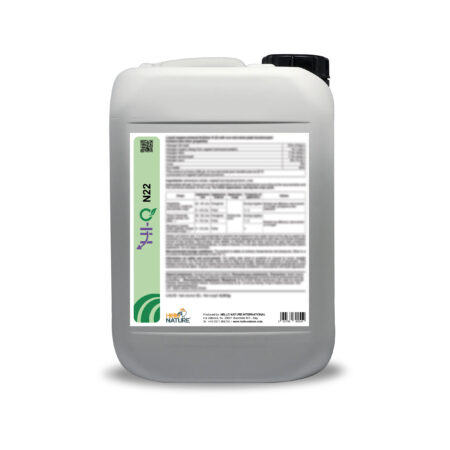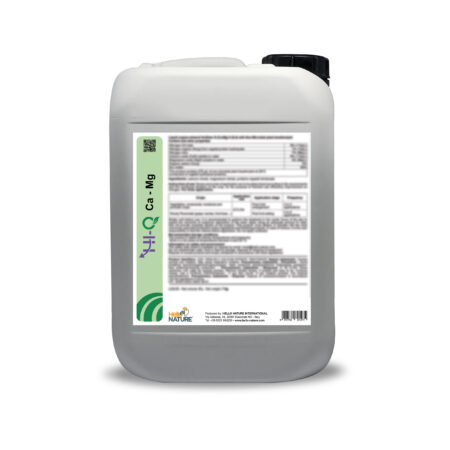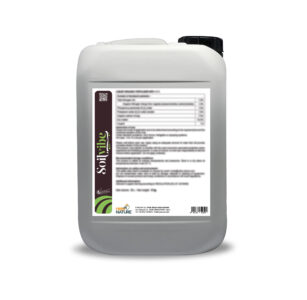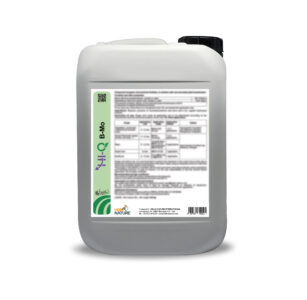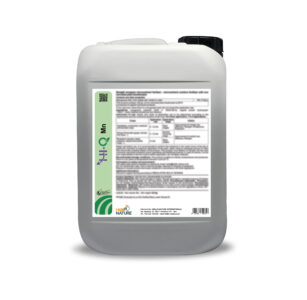Recommended to use as a foliar spray during the coolest parts of the day. Compatible with most common fertilizers and phytosanitary products. All dosages provided are in standard conditions. Dosages and modes of application are to be determined on the basis of the requirements and the nutritional status of the crop.
On a general basis: apply 0,4 – 1 L/ha repeat 3 times starting before flowering
Industries: Landscape, Greenhouse, Nursery, Hydroponic, Horticultural, and Specialty Crops
VEGETAL PROTEIN HYDROLYSATES
HELLO NATURE ’s Vegetal Protein Hydrolysate products are made exclusively from the highest quality, non-GMO vegetal sources and are guaranteed to contain no animal by-products. They are produced using a proprietary Enzymatic Hydrolysis process. They naturally contain organic nitrogen, organic carbon, and Plant Stimulating Peptides.
Iron (Fe)
Is a critical element for the whole metabolism of plants, being crucial for metabolic processes such as respiration and photosynthesis as well as for biosynthesis of fundamental molecules like chlorophyll. It is also essential for nitrogen and sulfur assimilation.
Boron (B)
Is used with calcium in cell wall synthesis and is essential for cell division (creating new plant cells). B requirements are much higher for reproductive growth, so it helps with pollination, and fruit and seed development. Other functions include translocation of sugars and carbohydrates, nitrogen metabolism, regulation of hormone levels and transportation of potassium, which helps regulate internal water balance. Since B helps transport sugars, its deficiency can reduce the attraction and colonization of mycorrhizal fungi.
Manganese (Mn)
Primarily functions as part of the plant enzyme system, activating several metabolic functions. Mn is essential for photosynthesis metabolism. It affects nutritional quality, strength, and stiffness of plant tissues, being involved in the synthesis of valuable components such as ascorbic acid (vitamin C) and lignin.
Zinc (Zn)
Is a key component of many proteins and enzymes. It is used in the formation of chlorophyll and some carbohydrates, conversion of starches to sugars and its presence in plant tissue helps the plant to withstand cold temperatures. Zn contributes to growth hormone production and stem elongation.
Copper (Cu)
Is essential in several plant enzymes with several properties and functions. Cu is necessary for chlorophyll formation, and it also has a primary role in carbohydrate and protein metabolism.

